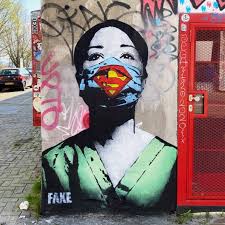
The 9th session of FSV / CEFRES seminar “Reflecting on Crises” will be hosted by:
Michèle Baussant (CNRS, CEFRES)
Topic: “Here is a place that has left its place”: Memories of the Vanquished, Traces of Crises and Decolonial Wars
Where: online.
To register, please contact the organizers: maria.kokkinou@cefres.cz
When: Wednesday, December 2nd, 12:30-1:50pm
Language: French
As part of the seminar:
“Enjeux contemporains. Penser les crises” / Current Issues. Reflecting on Crises
organized by Maria Kokkinou (CEFRES / UK) and Jérôme Heurtaux (CEFRES)
Presentation of the seminar:
The crisis has the wind in its sails: due to the appearance and extensive spread of Covid-19 in 2020, this concept has regained a world-wide attention, last observed during the financial crisis of 2009. Apart from these spectacular moments of global turmoil, we can no longer count the events or phenomena that are described as crises.
A concept inextricably linked to modernity, a “crisis” (pre)occupies our societies in all its dimensions. The polysemic uses of the term and its very topicality prompt us to revisit this concept, its different meanings and uses. This seminar course is devoted to this task. It will involve the intervention of researchers from various disciplines – political sociology, history, art history, anthropology, philosophy, etc.
What realities are qualified as “crises” and in which ways are they critical? What is a crisis and how to explain its emergence? How does a crisis unfold, what are its effects and consequences? Why do crises give rise to conflicts of interpretation over their meaning? Is the notion of crisis a central operator of our modernity and a key to understanding the challenges that contemporary societies face?
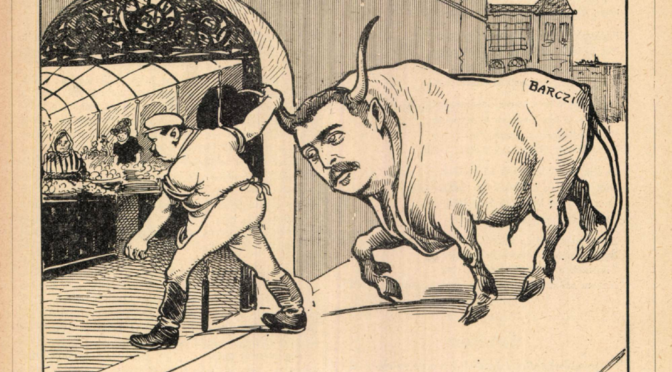
The 8th session of FSV / CEFRES seminar “Reflecting on Crises” will be hosted by:
Mátyás Erdélyi (CEFRES / Charles University)
Topic: The Making of Crises in History: The Case of Inflation
Where: online.
To register, please contact the organizers: maria.kokkinou(@)cefres.cz
When: Wednesday, November 25th, 12:30-1:50pm
Language: French
As part of the seminar:
“Enjeux contemporains. Penser les crises” / Current Issues. Reflecting on Crises
organized by Maria Kokkinou (CEFRES / UK) and Jérôme Heurtaux (CEFRES)
Presentation of the seminar:
The crisis has the wind in its sails: due to the appearance and extensive spread of Covid-19 in 2020, this concept has regained a world-wide attention, last observed during the financial crisis of 2009. Apart from these spectacular moments of global turmoil, we can no longer count the events or phenomena that are described as crises.
A concept inextricably linked to modernity, a “crisis” (pre)occupies our societies in all its dimensions. The polysemic uses of the term and its very topicality prompt us to revisit this concept, its different meanings and uses. This seminar course is devoted to this task. It will involve the intervention of researchers from various disciplines – political sociology, history, art history, anthropology, philosophy, etc.
What realities are qualified as “crises” and in which ways are they critical? What is a crisis and how to explain its emergence? How does a crisis unfold, what are its effects and consequences? Why do crises give rise to conflicts of interpretation over their meaning? Is the notion of crisis a central operator of our modernity and a key to understanding the challenges that contemporary societies face?
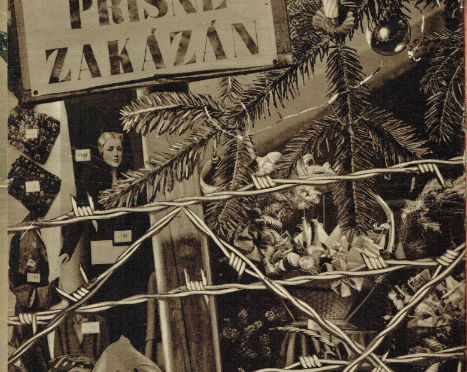
The 7th session of FSV / CEFRES seminar “Reflecting on Crises” will be hosted by:
Fedora Parkmann (Insitute of Art History, Czech Academy of Sciences / CEFRES)
Topic: Denouncing the Economic Crisis through Photography
Where: online.
To register, please contact the organizers: maria.kokkinou@cefres.cz
When: Wednesday, November 18th, 12:30-1:50pm
Language: French
As part of the seminar:
“Enjeux contemporains : Penser les crises” / Current Issues. Reflecting on Crises
organized by Maria Kokkinou (CEFRES / UK) and Jérôme Heurtaux (CEFRES)
Presentation of the seminar:
The crisis has the wind in its sails: due to the appearance and extensive spread of Covid-19 in 2020, this concept has regained a world-wide attention, last observed during the financial crisis of 2009. Apart from these spectacular moments of global turmoil, we can no longer count the events or phenomena that are described as crises.
A concept inextricably linked to modernity, a “crisis” (pre)occupies our societies in all its dimensions. The polysemic uses of the term and its very topicality prompt us to revisit this concept, its different meanings and uses. This seminar course is devoted to this task. It will involve the intervention of researchers from various disciplines – political sociology, history, art history, anthropology, philosophy, etc.
What realities are qualified as “crises” and in which ways are they critical? What is a crisis and how to explain its emergence? How does a crisis unfold, what are its effects and consequences? Why do crises give rise to conflicts of interpretation over their meaning? Is the notion of crisis a central operator of our modernity and a key to understanding the challenges that contemporary societies face?
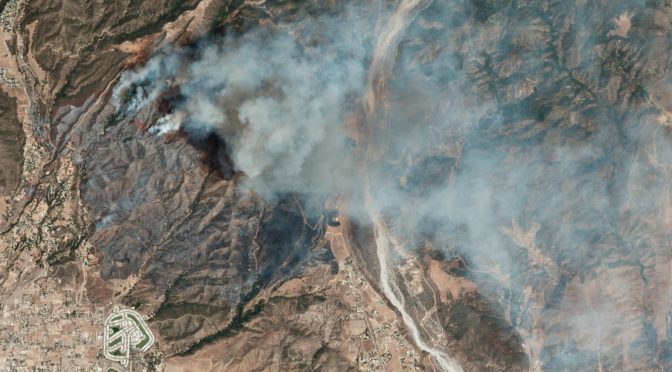
The 6th session of FSV / CEFRES seminar “Reflecting on Crises” will be hosted by:
Chiara Mengozzi (FF UK / CEFRES) &
Julien Wacquez (CEFRES)
Topic: Representing the Living World: Collapse of Ecosystems and Reconfiguration of Knowledge
Where: online.
To register, please contact the organizers: maria.kokkinou@cefres.cz
When: Wednesday November 11th, 12:30–1:50pm
Language: French
As part of the seminar:
Enjeux contemporains. Penser les crises / Current Issues. Reflecting on Crises
organized by Maria Kokkinou (CEFRES / UK) and Jérôme Heurtaux (CEFRES)
Presentation of the seminar:
The crisis has the wind in its sails: due to the appearance and extensive spread of Covid-19 in 2020, this concept has regained a world-wide attention, last observed during the financial crisis of 2009. Apart from these spectacular moments of global turmoil, we can no longer count the events or phenomena that are described as crises.
A concept inextricably linked to modernity, a “crisis” (pre)occupies our societies in all its dimensions. The polysemic uses of the term and its very topicality prompt us to revisit this concept, its different meanings and uses. This seminar course is devoted to this task. It will involve the intervention of researchers from various disciplines – political sociology, history, art history, anthropology, philosophy, etc.
What realities are qualified as “crises” and in which ways are they critical? What is a crisis and how to explain its emergence? How does a crisis unfold, what are its effects and consequences? Why do crises give rise to conflicts of interpretation over their meaning? Is the notion of crisis a central operator of our modernity and a key to understanding the challenges that contemporary societies face?
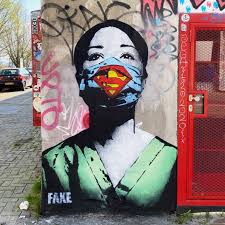
The 5th session of FSV / CEFRES seminar “Reflecting on Crises” will be hosted by:
Jérôme Heurtaux (Paris-Dauphine Université, CEFRES)
Topic: 1958, 1968, 2002: Political Crisis in France
Where: online.
To register, please contact the organizers: maria.kokkinou@cefres.cz
When: Wednesday, November 4th, 12:30-1:50pm
Language: French
As part of the seminar:
Enjeux contemporains : penser les crises / Current Issues: Reflecting on Crises
organized by Maria Kokkinou (CEFRES / UK) and Jérôme Heurtaux (CEFRES)
Presentation of the seminar:
The crisis has the wind in its sails: due to the appearance and extensive spread of Covid-19 in 2020, this concept has regained a world-wide attention, last observed during the financial crisis of 2009. Apart from these spectacular moments of global turmoil, we can no longer count the events or phenomena that are described as crises.
A concept inextricably linked to modernity, a “crisis” (pre)occupies our societies in all its dimensions. The polysemic uses of the term and its very topicality prompt us to revisit this concept, its different meanings and uses. This seminar course is devoted to this task. It will involve the intervention of researchers from various disciplines – political sociology, history, art history, anthropology, philosophy, etc.
What realities are qualified as “crises” and in which ways are they critical? What is a crisis and how to explain its emergence? How does a crisis unfold, what are its effects and consequences? Why do crises give rise to conflicts of interpretation over their meaning? Is the notion of crisis a central operator of our modernity and a key to understanding the challenges that contemporary societies face?
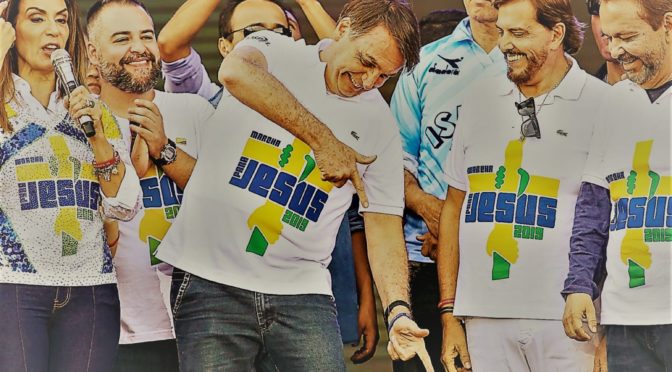
The 4th session of FSV / CEFRES seminar “Reflection on Crises” will be hosted by:
Felipe Fernandes (EHESS / CEFRES)
Topic: Populism in Power and the Crisis of Democracy in Brazil
Where: online
To register, please contact the organizers: maria.kokkinou@cefres.cz
When: Wednesday, October 21st, 12:30–1:50pm
Language: French
As part of the seminar:
“Enjeux contemporains. Penser les crises” / Current Issues. Reflecting on Crises
organized by Maria Kokkinou (CEFRES / UK) and Jérôme Heurtaux (CEFRES)
Presentation of the seminar:
The crisis has the wind in its sails: due to the appearance and extensive spread of Covid-19 in 2020, this concept has regained a world-wide attention, last observed during the financial crisis of 2009. Apart from these spectacular moments of global turmoil, we can no longer count the events or phenomena that are described as crises.
A concept inextricably linked to modernity, a “crisis” (pre)occupies our societies in all its dimensions. The polysemic uses of the term and its very topicality prompt us to revisit this concept, its different meanings and uses. This seminar course is devoted to this task. It will involve the intervention of researchers from various disciplines – political sociology, history, art history, anthropology, philosophy, etc.
What realities are qualified as “crises” and in which ways are they critical? What is a crisis and how to explain its emergence? How does a crisis unfold, what are its effects and consequences? Why do crises give rise to conflicts of interpretation over their meaning? Is the notion of crisis a central operator of our modernity and a key to understanding the challenges that contemporary societies face?






